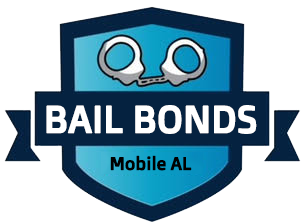
Once a judge determines that someone is eligible for bond and sets the price, the next step that a defendant or loved one must make is to choose how to go about paying. There are actually a few options out there and some may be more relevant to specific situations then others. Here is a breakdown of the types of bonds that are available and which may be best for you.
Personal recognizance
Before going into all the paid types of bonds there are, one option that may be granted to some is personal recognizance. This option is only given at the judge’s discretion and is typically only offered to first-time offenders or when the charges are minor. With personal recognizance, the defendant will not have to pay anything for a bond and will simply sign a contract promising to show up to any and all court proceedings.
Cash bond
Cash bonds are probably the most traditional bond in that you simply pay directly to the courts for the full amount set. If done this way, once the case has been completed, the defendant will have the bond money returned minus any fines and fees. The issue that many come across with cash bonds however is that the upfront cost is prohibitively high. Many do not have thousands of dollars on hand that they can afford to have tied up for months on end. If you are able to afford it and can stay liquid without this money, it may be an ideal way to pay.
Surety bond
Surety bonds are usually the most common and popular type of bond because it only requires a small fraction of the actual bond cost. Surety bonds are obtained through a bail bondsman and on require typically around 10-15% of the bond cost down. The rest is covered by the bail bond agency. The catch with this however is that the money down is not refundable and is considered the service cost for working with a bail bond agency. The reason why this is the most common method is that it would be considered the most accessible to people regardless of their financial situation.
Immigration Bonds
Immigration bonds are bonds that are really only applicable in a very specific circumstance in that the defendant has been arrested and is in the country illegally. The main difference between an immigration bond and the other types of bonds is that they have more restrictions in regards to how a defendant is able to be released and who is allowed to post the bond. In immigration cases, many times a bond is only offered if the defendant volunteers to return to their home country at their own cost but many if this is not an option are held until deportation can happen. The other restriction that comes with immigration bonds is that anyone posting money for the bond must a legal US resident.
Collateral
Collateral is a well-known method to pay for bonds in which a person uses items of value such as their car or property deed to leverage as the cost for release. This method however is one of the riskier and actually less available methods. This is because not all states even allow for collateral to be used but an indemnitor who is offering their home as collateral has to be completely sure the defendant will show to court or otherwise face potentially losing their home. Collateral should be a last resort option and one that is only done when it is a guarantee that you have control over ensuring the defendant will show to their arraignment.



